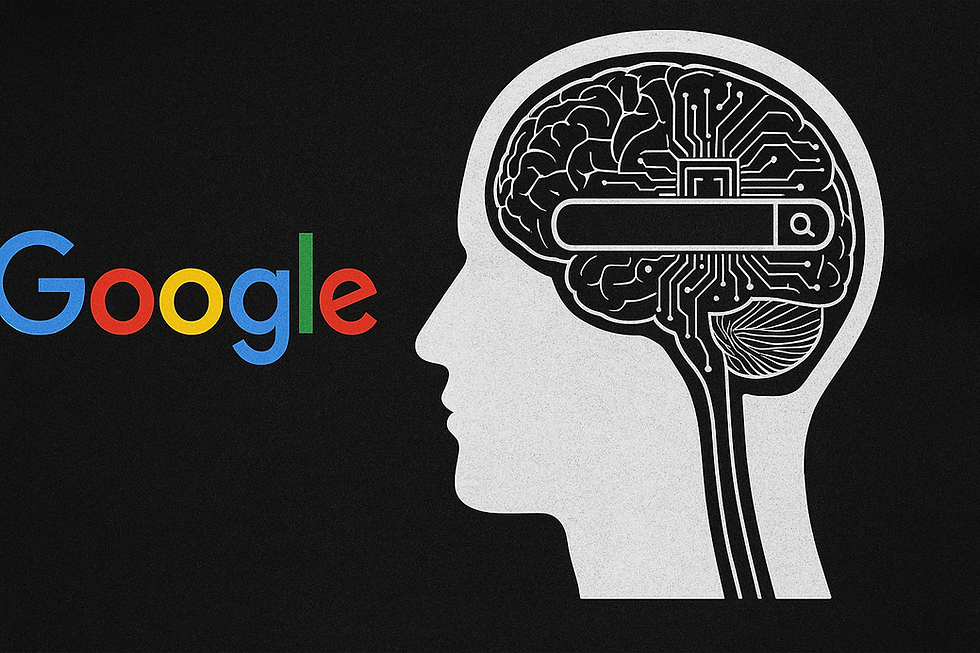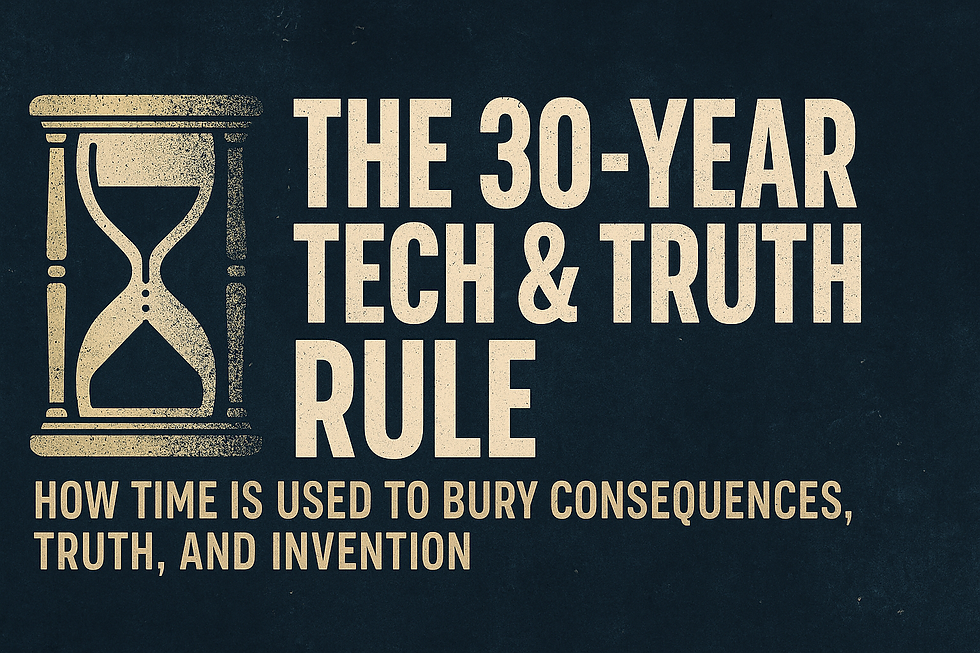Google and the Architecture of Mind Control
- SU

- Aug 21
- 3 min read

Introduction: The Friendly Face of Total Recall
Google began as a search engine, a simple gateway to the web. Its slogan, “Don’t be evil,” positioned it as a benevolent tool for the curious mind. But over the decades, Google has become more than a company, it has become the invisible infrastructure of thought itself. When a single corporation controls how billions access, filter, and interpret information, the line between convenience and control blurs into something far more dangerous.
Search as Cognitive Gatekeeping
The average person assumes Google shows them “the best” or “most relevant” results. In reality, algorithms quietly determine what is seen, and more importantly, what is unseen. This is cognitive gatekeeping: shaping collective perception not by creating new truths, but by ranking existing ones.
Research by psychologist Robert Epstein has documented the Search Engine Manipulation Effect (SEME), showing how Google’s algorithm can sway political preferences without detection. Subtle ordering of search results can shift undecided voters by margins large enough to decide elections. When information architecture determines political outcomes, democracy itself becomes a curated experience.
The Data Feedback Loop
Google’s control isn’t limited to what we see, it extends to what we think we want. Every search query, every click, every pause feeds back into its algorithmic model of human behavior. This data isn’t neutral; it’s predictive and prescriptive.
Predictive: Google knows what you’re likely to search, desire, or buy.
Prescriptive: By nudging results, suggestions, and ads, it can guide you toward those behaviors.
The result is a closed loop of thought, where human cognition is continually shaped by algorithmic design. Your free will becomes a feedback product.
Beyond Search: The Ecosystem of Influence
Google’s reach extends into nearly every digital space:
YouTube (world’s second largest search engine) where autoplay and recommendation algorithms have radicalized users and created echo chambers.
Android (world’s dominant mobile OS) which gives Google near-total access to global communication and behavioral data.
Gmail, Maps, Docs, and Chrome…
the tools of daily life that function as surveillance vectors, each feeding the larger system.
Together, these platforms constitute an ecosystem of influence, where the same company that organizes knowledge also monetizes attention and predicts behavior. This is not just a monopoly of market power, but a monopoly of mind-space.
Surveillance Capitalism Meets Behavioral Control
Shoshana Zuboff coined the term surveillance capitalism to describe how tech giants commodify personal data. Google isn’t just selling ads; it’s selling predictive certainty, the ability to forecast and shape human actions at scale.
In the wrong hands, this capability crosses into the realm of behavioral modification. It is no exaggeration to call it a form of digital operant conditioning, where reinforcement schedules are managed by algorithms more sophisticated than any psychologist could dream of.
The Political Dimension
The implications for governance are profound:
Election Influence: Search ranking and autocomplete biases can tilt perception before votes are even cast.
Policy Pressure: Governments that challenge Google’s dominance face coordinated lobbying and media pressure.
Narrative Control: By privileging some sources and burying others, Google can effectively rewrite consensus reality.
The result is a quiet fusion of corporate and state power, an alliance where information itself becomes the battlefield, and Google the chief architect of perception.
Mind Control Without Drugs or Electrodes
Traditional images of “mind control” conjure dystopian experiments and Orwellian brainwashing. But in the digital age, no electrodes are necessary. Mind control is algorithmic, ambient, and invisible.
You don’t need to be forced; you just need to be nudged.
You don’t need propaganda shouted; you just need opposing voices hidden.
You don’t need a Ministry of Truth; you just need a search bar that always delivers the “right” answer.
This is the genius, and the danger, of Google’s system. It doesn’t feel like control. It feels like convenience.
But there is also an Apple Ecosystem, MS Ecosystem, Meta, Elon X Tesla, etc…
An entire technocratic global governance surveillance state.
Conclusion: The Illusion of Choice
“Smart” technology has woven itself into the fabric of daily life so thoroughly that to reject it feels impossible. Yet with every search and every click, we trade not just data but autonomy… if we follow mainstream.
We have to swim upstream, not mainstream.
By shaping what we see, what we find, and what we believe to be true, technocrats have built the most powerful system of cognitive influence in human history.
Mind control no longer requires brute force, it only requires control of the interface between human curiosity and information. And technocrats already own that interface.


